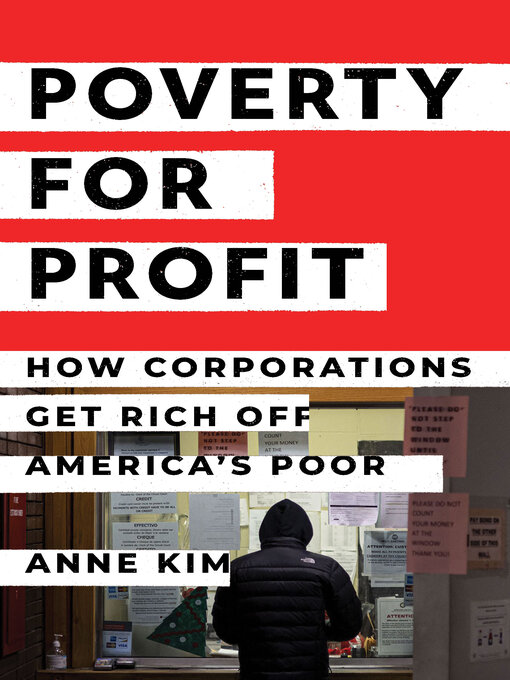A devastating investigation into the "corporate poverty complex"—the myriad businesses that profit from the poor
Poverty is big business in America. The federal government spends about $900 billion a year on programs that directly or disproportionately impact poor Americans, including antipoverty programs such as the earned income tax credit, Medicaid, and affordable housing vouchers and subsidies. States and local governments spend tens of billions more. Ironically, these enormous sums fuel the "corporate poverty complex," a vast web of hidden industries and entrenched private-sector interests that profit from the bureaucracies regulating the lives of the poor. From bail bondsmen to dialysis providers to towing companies, their business models depend on exploiting low-income Americans, and their political influence ensures a thriving set of industries where everyone profits except the poor, while U.S. taxpayers foot the bill.
In Poverty for Profit, veteran journalist Anne Kim investigates the multiple industries that infiltrate almost every aspect of the lives of the poor—health care, housing, criminal justice, and nutrition. She explains how these businesses are aided by public policies such as the wholesale privatization of government services and the political influence these industries wield over lawmakers and regulators.
Supported by original investigative reporting on the lesser-known players profiting from the antipoverty industry, Poverty for Profit adds a crucial dimension to our understanding of how structural inequality and structural racism function today.


